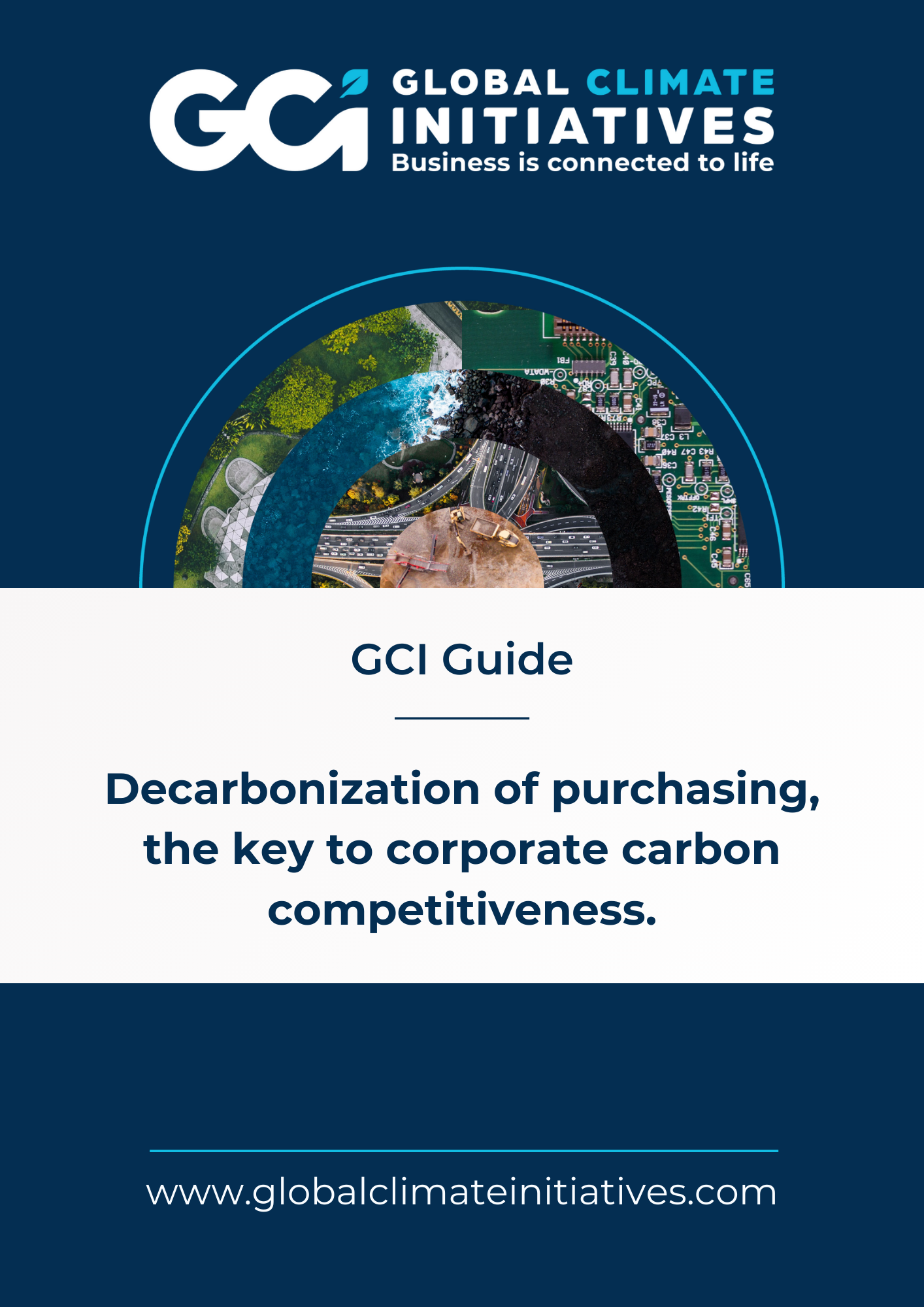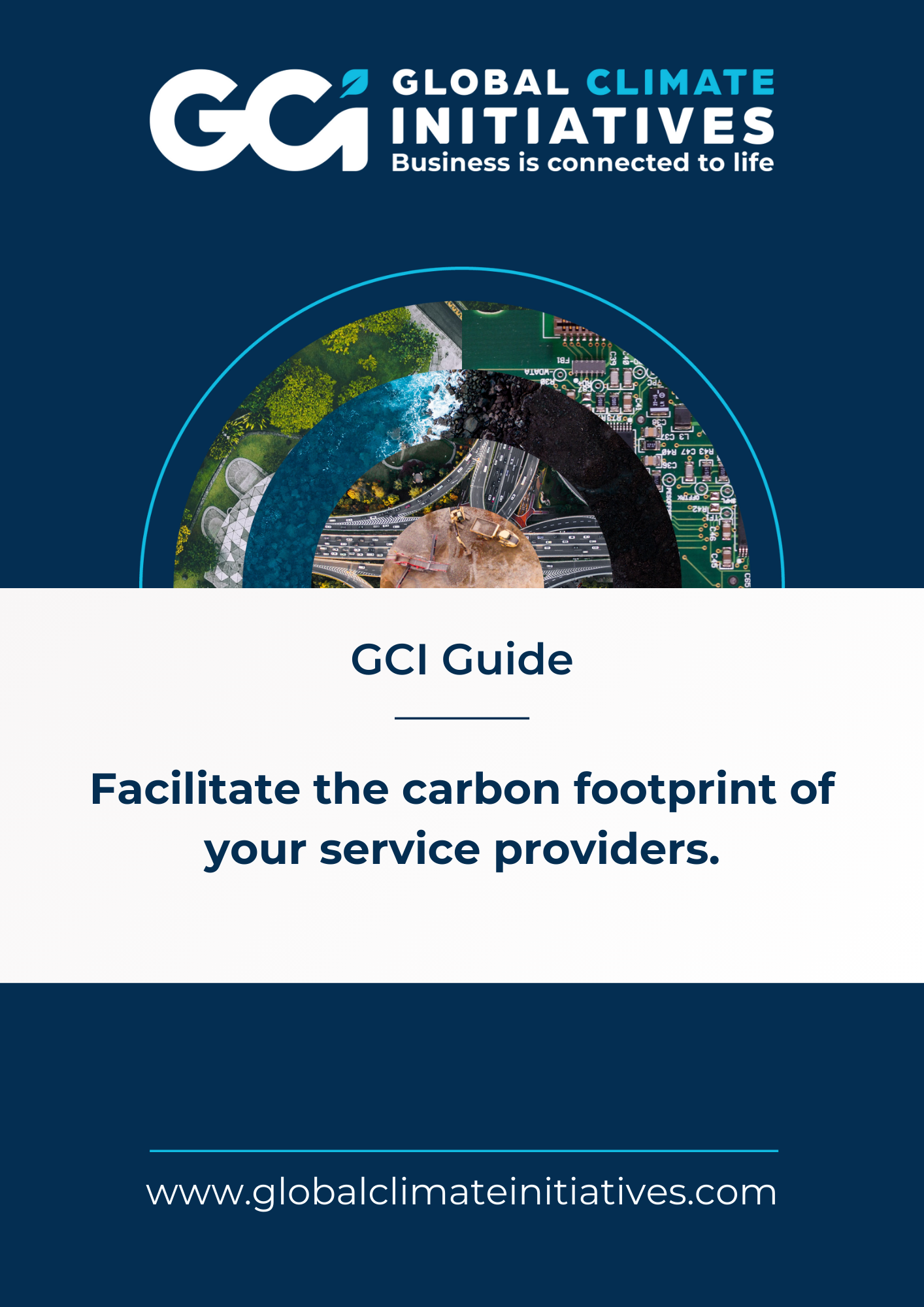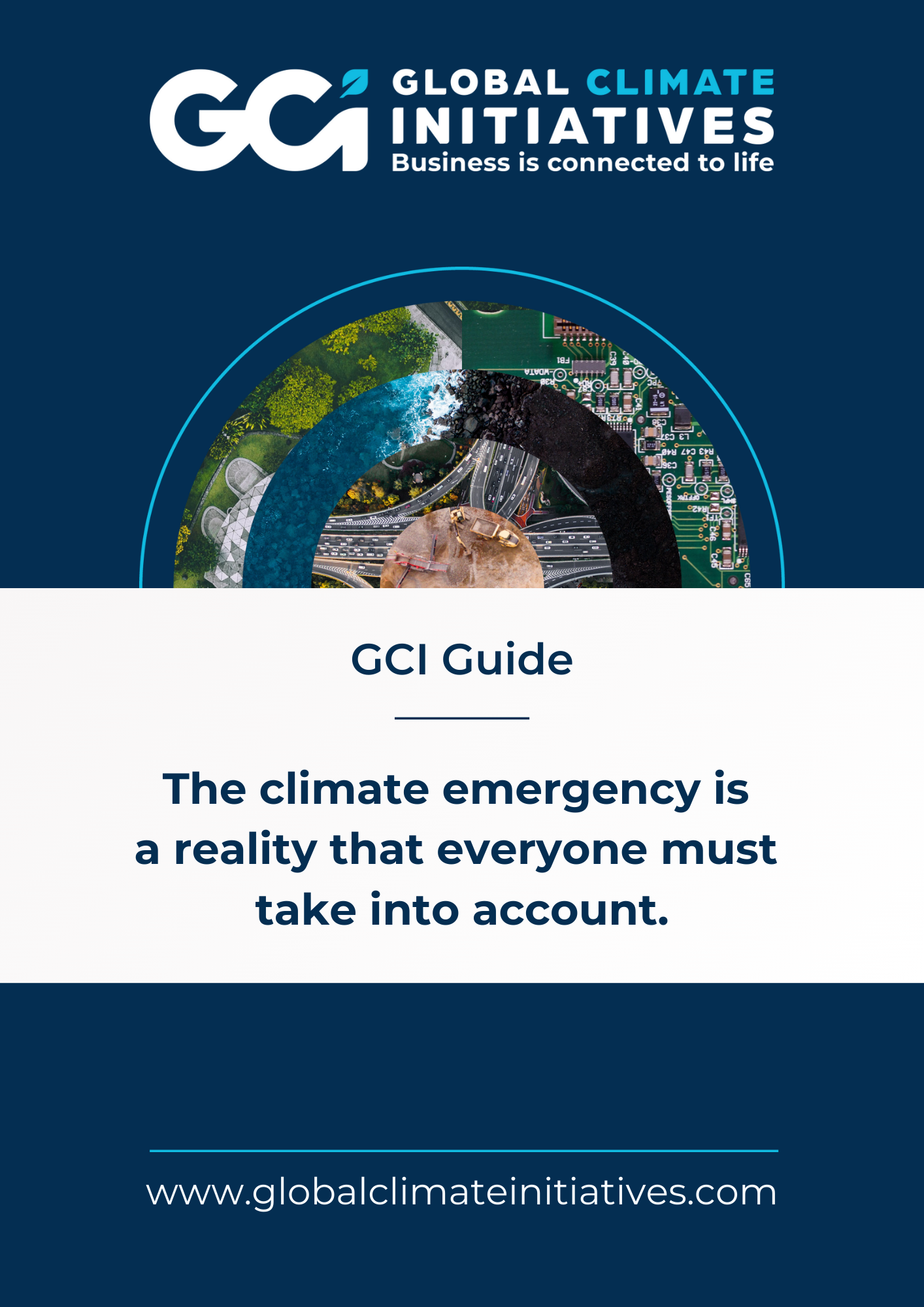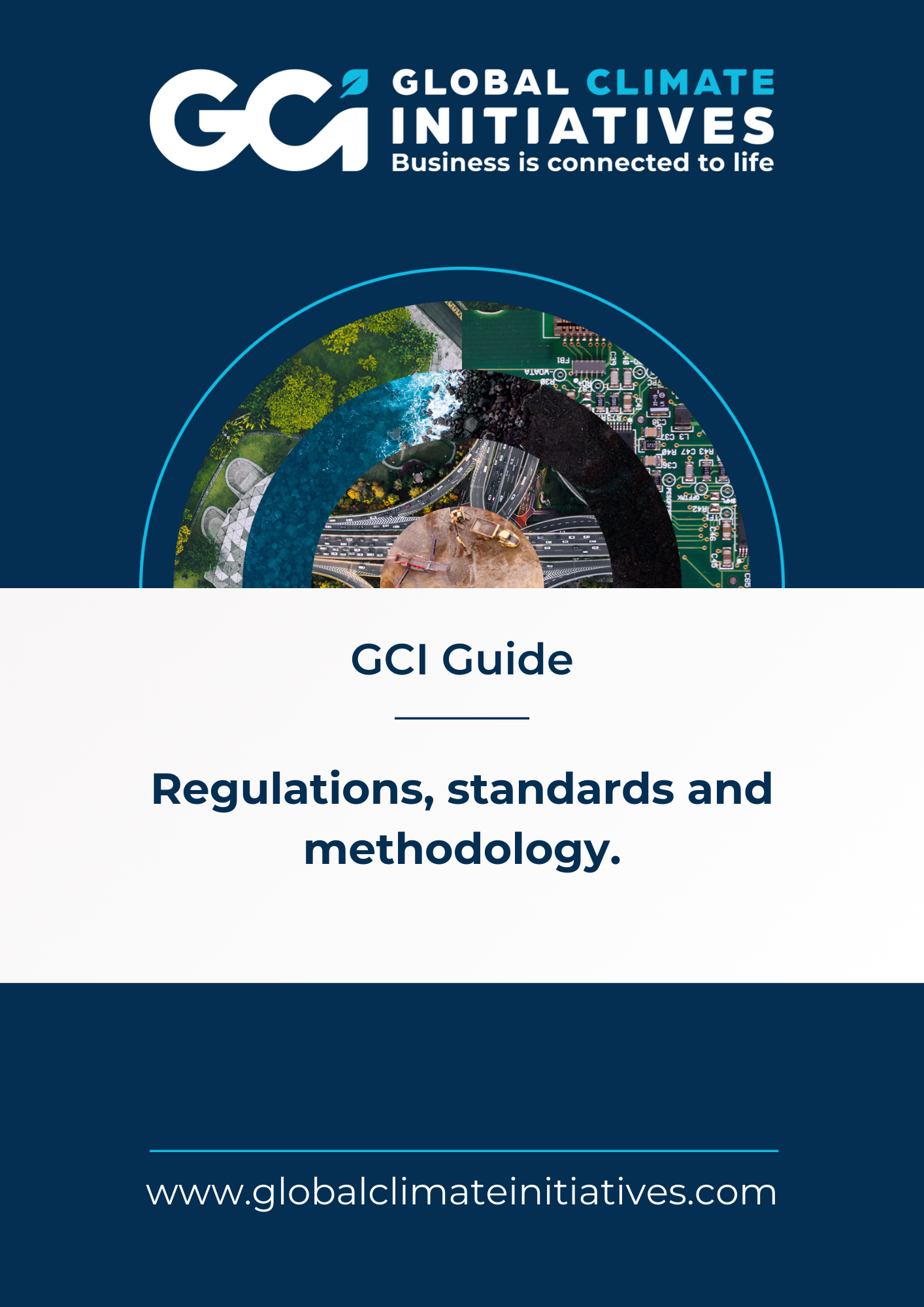Committing to a decarbonization strategy?
Committing to a decarbonization strategy?
Offset your company's carbon footprint
How do I calculate my GHG footprint?
Reduce and manage your company's carbon footprint

Mai 20, 2025 |
Bilan GES, Définitions, Expertise, S'engager dans une stratégie de décarbonation ?
Groupe d’experts intergouvernemental sur l’évolution du climat (GIEC) : Rapport d’évaluation 2024
Le rapport 2024 du GIEC alerte sur l’aggravation rapide du changement climatique, avec un risque de +3 °C d’ici 2100 si rien ne change. Il appelle à une réduction immédiate des émissions, une transition juste et des actions coordonnées à l’échelle mondiale.

Mai 19, 2025 |
Bilan GES, Définitions, Expertise, S'engager dans une stratégie de décarbonation ?
La norme ISO 14001 : Guide complet du système de management environnemental
La norme ISO 14001 est une référence internationale pour le management environnemental. Elle aide les entreprises à identifier, maîtriser et réduire l’impact de leurs activités sur l’environnement.

Mai 16, 2025 |
GHG assessment, Committing to a decarbonization strategy, Low-carbon strategy
La compensation carbone : un outil complémentaire pour atteindre les émissions zéro
La compensation carbone finance des projets de séquestration pour neutraliser les émissions inévitables, à condition de respecter des critères stricts et de s'intégrer à une stratégie bas carbone globale.

Avr 10, 2025 |
Offsetting your organization's carbon footprint, Committing to a decarbonization strategy?
Rejets de CO₂ : une expression courante… mais scientifiquement inexacte ?
L’expression "rejet de CO ₂" est couramment utilisée, mais scientifiquement inexacte. Pourtant, ce terme reste un repère efficace pour sensibiliser largement aux enjeux climatiques.

Avr 10, 2025 |
Offsetting your organization's carbon footprint, Committing to a decarbonization strategy?
Des solutions bas carbones pour un système alimentaire sans énergies fossiles
Et si l’on produisait notre nourriture sans pétrole ni gaz ? Cet article explore les solutions concrètes pour transformer le système alimentaire et en faire un levier puissant de la transition bas carbone.

Mar 25, 2025 |
Offsetting your organization's carbon footprint, Reducing and managing your organization's carbon footprint, Committing to a decarbonization strategy?
Carbon plan: how to structure your reduction targets and actions?
Faced with new climate obligations, companies need to structure their low-carbon plan. Discover the key stages and GCI's solutions for a successful transition.

Feb 12, 2025 |
Offsetting your organization's carbon footprint, Committing to a decarbonization strategy?
Calculate your carbon footprint: anticipate the carbon tax and reduce your costs
Organizations must now publish detailed information on their sustainability and integrate carbon footprint calculations as a key tool for meeting these new requirements.

Dec 16, 2024 |
Offsetting your organization's carbon footprint, Reducing and managing your organization's carbon footprint, Committing to a decarbonization strategy?
Acting for the climate: 3 key actions to reduce greenhouse gas emissions
Adopt a low-carbon strategy combining concrete and ambitious measures.

Dec 11, 2024 |
Offsetting your organization's carbon footprint, Committing to a decarbonization strategy?
Taxe Carbone: Quels Impacts pour les Entreprises et Comment S'y Préparer?
The carbon tax, a key tool in the energy transition, aims to reduce CO ₂ emissions by taxing polluting activities. While it represents a challenge for businesses, it also offers opportunities for innovation and the transition to sustainable models.

Nov 8, 2024 |
Committing to a decarbonization strategy, Low-carbon strategy
Responsible purchasing: integrating carbon footprints into supplier qualification
Today, integrating sustainability into purchasing decisions is much more than an eco-responsible gesture; it has become an essential CSR strategy.

Oct 30, 2024 |
Reduce and manage your organization's carbon footprint, Embark on a decarbonization strategy?
Mobilize your employees to reduce your carbon footprint and build a resilient future
By educating and training their employees in environmental issues, companies create a major strategic lever.

Oct 24, 2024 |
Reduce and manage your organization's carbon footprint, Embark on a decarbonization strategy?
How can you reduce your carbon footprint?
Reducing their carbon footprint is essential for companies faced with the climate emergency. By adopting energy transition solutions and sustainable practices, they can both comply with regulations and improve their economic performance.
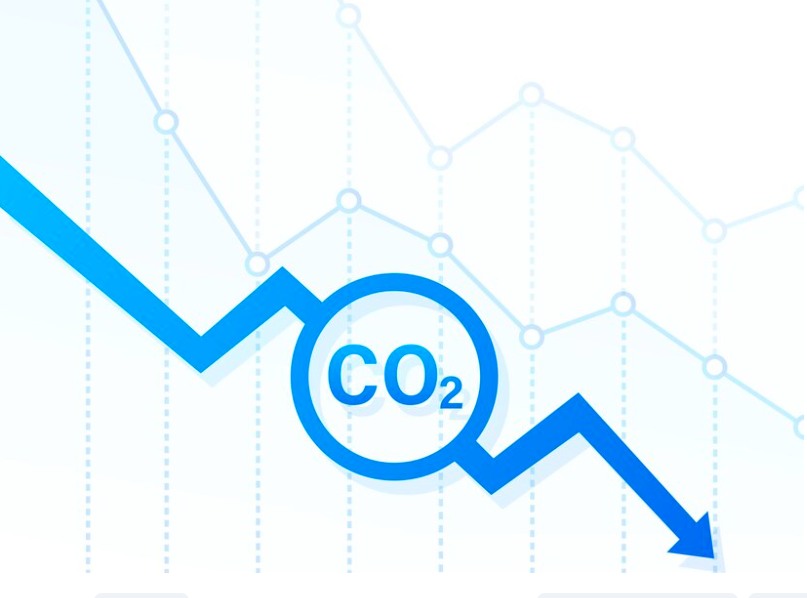
July 31, 2023 |
Reduce and manage your organization's carbon footprint, Embark on a decarbonization strategy?
Define and manage your company's low-carbon trajectory
Setting up a low-carbon trajectory is a fundamental issue for companies today. Here's how to get started 👉

July 27, 2023 |
Reducing and managing your organization's carbon footprint, Committing to a decarbonization strategy, Low-carbon strategy
A complete guide to achieving carbon neutrality in the workplace
Here's a detailed guide to help companies make their own contribution to the global goal of carbon neutrality.

July 3, 2023 |
Reducing and managing your organization's carbon footprint, Committing to a decarbonization strategy, Low-carbon strategy
Responsible innovation: definition, challenges and prospects
Innovating without negatively impacting the planet is a major challenge. Here are a few perspectives to help companies meet this challenge.

June 30, 2023 |
Bilan GES, Bilan GES par secteur, S'engager dans une stratégie de décarbonation ?
The specific impact of digital activities and services in the GHG inventory® report
Decarbonizing the digital sector is a major challenge. But how can we achieve it? Here are a few concrete measures to help your company.

June 9, 2023 |
Bilan GES, Bilan GES par secteur, S'engager dans une stratégie de décarbonation ?
Why and how can you reduce the GHG emissions of your travel and transport operations and improve your Carbon Competitiveness®?
Emissions linked to transport are very significant and require concrete action to reduce them.

Apr 7, 2023 |
GHG assessment, Committing to a decarbonization strategy, Low-carbon strategy
How does my company's low-carbon strategy create value?
Every day, it becomes more and more imperative for every organization to embark on a Low-Carbon trajectory to guarantee its Carbon Competitiveness ®, the key to its long-term survival.

Feb 3, 2023 |
Committing to a decarbonization strategy, All GCI news, videos
Decarbonization of Purchasing
With the ambition to reduce greenhouse gas emissions by at least 55% by 2030, the EU is imposing on companies a real contract with the planet. This decarbonization is largely in the hands of purchasing departments, and offers many advantages in terms of securing and sustaining supply chains. It remains to choose the right tools to project and manage this low-carbon trajectory, and to convince its suppliers to commit to sharing its benefits, particularly in terms of reducing future taxation.

Jul 22, 2022 |
Carrying out a GHG assessment, Committing to a decarbonization strategy?
Decree No. 2022-982: since July 1, companies must weigh themselves and...start losing weight!
Since the beginning of July 2022, new regulatory constraints on reporting, defining and demonstrating the low-carbon pathway of companies have been imposed by a new decree with immediate application. These new obligations considerably expand the scope of emissions to be taken into account.
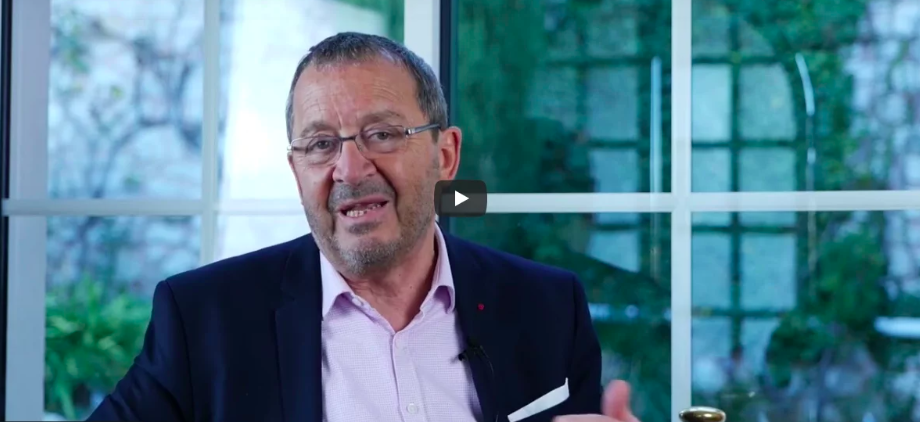
May 25, 2022 |
Committing to a decarbonization strategy?
Calculating a carbon footprint: an essential strategy
Calculating your carbon footprint, a process for all companies? Philippe Mangeard, director of the Global Climate Initiatives platform, presents the course of his digital calculation platform and gives you his advice to help companies and entrepreneurs improve their energy performance.

May 13, 2022 |
GHG assessment, Definitions, Committing to a decarbonization strategy?
Carrying out a GHG assessment, an essential first step in a company's decarbonization process
Explore the essentials of corporate decarbonization, highlighting the importance of carbon footprint. Discover the French Low Carbon Strategy (SNBC), and ADEME's key milestones, and benefit from enlightening testimonials from Pierre Montagne, President of Terneo, and Cécile Suquet, CSR Manager at LCL.

Apr 13, 2022 |
GHG assessment by sector, Committing to a decarbonization strategy?
Carrying out a balance sheet in the tertiary sector
The tertiary sector covers a wide range of activities. It ranges from trade to administration, including transport, financial and real estate activities, business and personal services, education, health and social work. Because of its different sectors of activity, the possibilities for reducing emissions are many and varied.
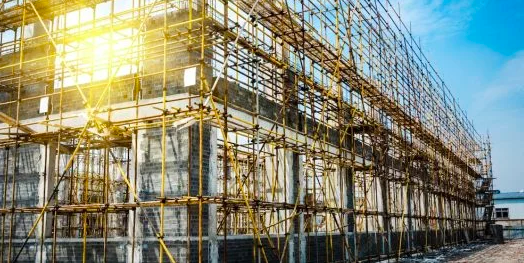
Apr 13, 2022 |
GHG assessment by sector, Committing to a decarbonization strategy?
Carrying out an assessment in the secondary sector
The secondary sector includes all activities consisting of a more or less elaborate transformation of raw materials (manufacturing industry, construction). Industrial actors and their financiers are directly concerned by the anticipation of climate change and the construction of a low-carbon economy

Apr 12, 2022 |
GHG assessment by sector, Committing to a decarbonization strategy?
Conducting a GHG assessment in the primary sector
The primary sector includes all activities whose purpose is to exploit natural resources: agriculture, fishing, forestry, mining, deposits. This sector is the first to be affected by global warming and could therefore benefit from the reduction of emissions, including its own. Agriculture and the agri-food industry are particularly vulnerable to the effects of climate change.

Mar 29, 2022 |
Committing to a decarbonization strategy?
Why do a carbon assessment?
Calculating one's carbon impact on our environment starts with an intention to work in an eco-responsible way. However, the ecogesture aspect may not echo your aspirations and priorities as a business leader, however, the realization of a carbon footprint allows much more than that! It can be done for economic reasons or used as a commercial argument.
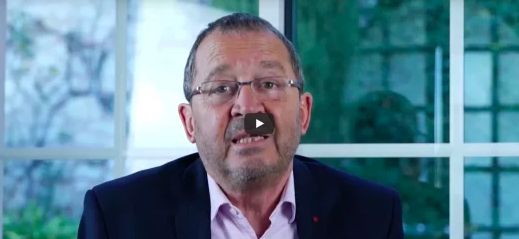
Mar 28, 2022 |
Committing to a decarbonization strategy?
Carbon footprint, an update on the regulations in 2022
The law requires companies with more than 50 employees to simply make their scope 1 report, i.e. the most uninteresting part of the report, which only concerns direct energy consumption: diesel, gasoline, wood, coal. What is most interesting in a carbon footprint is scope 2, the energy that we buy: electricity, heat, cold, but especially scope 3, as Philippe Mangeard explains.
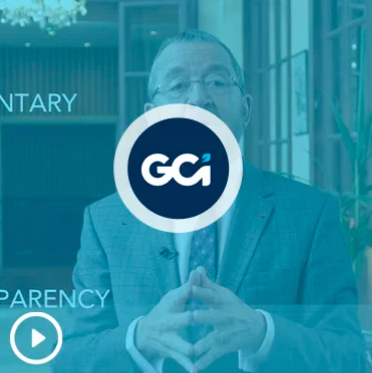
Jan 14, 2022 |
Committing to a decarbonization strategy, All GCI news, videos
CSR, Carbon footprint and supplier commitment to achieve a successful Low Carbon trajectory
Understand in 4 minutes, in all simplicity, the Carbon Footprint and the interest to involve your suppliers.
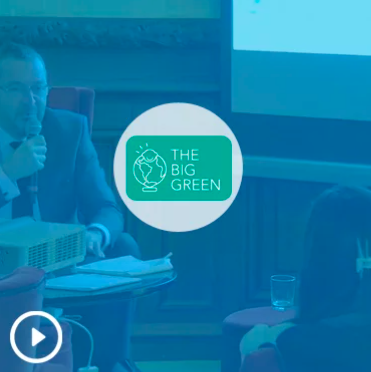
Jan 14, 2022 |
Committing to a decarbonization strategy, All GCI news, videos
How to improve your carbon footprint by mobilizing your partners and suppliers?
Taking into account the GHG emissions performance of its suppliers is one of the essential measures to reduce its own GHG emissions.

Oct 27, 2021 |
Committing to a decarbonization strategy, All GCI news, videos
GHG assessment: how to do it yourself and involve your suppliers in your low carbon trajectory?
Building tomorrow's world requires the mobilization and commitment of companies and their ecosystems to sustainable development, particularly through projects with a positive impact on society and the environment.
Prec.
1
2
3
4
Next step

Avr 10, 2025 |
Offsetting your organization's carbon footprint, Committing to a decarbonization strategy?
Rejets de CO₂ : une expression courante… mais scientifiquement inexacte ?
L’expression "rejet de CO ₂" est couramment utilisée, mais scientifiquement inexacte. Pourtant, ce terme reste un repère efficace pour sensibiliser largement aux enjeux climatiques.

Avr 10, 2025 |
Offsetting your organization's carbon footprint, Committing to a decarbonization strategy?
Des solutions bas carbones pour un système alimentaire sans énergies fossiles
Et si l’on produisait notre nourriture sans pétrole ni gaz ? Cet article explore les solutions concrètes pour transformer le système alimentaire et en faire un levier puissant de la transition bas carbone.

Mar 25, 2025 |
Offsetting your organization's carbon footprint, Reducing and managing your organization's carbon footprint, Committing to a decarbonization strategy?
Carbon plan: how to structure your reduction targets and actions?
Faced with new climate obligations, companies need to structure their low-carbon plan. Discover the key stages and GCI's solutions for a successful transition.

Feb 12, 2025 |
Offsetting your organization's carbon footprint, Committing to a decarbonization strategy?
Calculate your carbon footprint: anticipate the carbon tax and reduce your costs
Organizations must now publish detailed information on their sustainability and integrate carbon footprint calculations as a key tool for meeting these new requirements.

Dec 16, 2024 |
Offsetting your organization's carbon footprint, Reducing and managing your organization's carbon footprint, Committing to a decarbonization strategy?
Acting for the climate: 3 key actions to reduce greenhouse gas emissions
Adopt a low-carbon strategy combining concrete and ambitious measures.

Dec 11, 2024 |
Offsetting your organization's carbon footprint, Committing to a decarbonization strategy?
Taxe Carbone: Quels Impacts pour les Entreprises et Comment S'y Préparer?
The carbon tax, a key tool in the energy transition, aims to reduce CO ₂ emissions by taxing polluting activities. While it represents a challenge for businesses, it also offers opportunities for innovation and the transition to sustainable models.

June 10, 2024 |
Offset your company's carbon footprint
Carbon offsetting players: perspectives and criticisms
Carbon offsetting players have come in for a great deal of criticism, particularly regarding the use of carbon credits and the methodologies employed. This encourages companies to be cautious.

May 24, 2024 |
Bilan GES, Offsetting your organization's carbon footprint
Can we really talk about carbon neutrality?
This article explores the concept of carbon neutrality, discussing its importance, and examining the criticisms and challenges associated with its implementation.

May 24, 2024 |
Bilan GES, Offsetting your organization's carbon footprint
How is the price of carbon offsetting calculated?
This article explores the mechanisms for pricing carbon credits on regulated and voluntary markets.

May 23, 2024 |
Bilan GES, Offsetting your organization's carbon footprint
Certification of carbon offset projects
What is a certified carbon offset project? How is it certified? What types of certification exist? Find out the answers to these questions in this article.

Nov 3, 2023 |
Offset your company's carbon footprint
Corporate carbon offsetting: cure or cure-all for the climate?
Some companies opt for carbon offsetting to balance their greenhouse gas emissions. Find out about the advantages, the criticisms and how to optimize this strategy.

July 19, 2022 |
Offsetting your organization's carbon footprint, Definitions
Definition and proper use of the "Carbon Credit
A carbon credit is a unit equivalent to one tonne of CO2 avoided or sequestered. How is it calculated? What is its role and how does it work?

May 23, 2022 |
Offset your organization's carbon footprint, Reduce and manage your organization's carbon footprint
The GHG assessment also means reducing as much as possible and compensating seriously!
Carbon neutrality by 2050 requires immediate action. Find out how you can take action to reduce residual emissions with reduction actions and carbon offsetting.

Apr 24, 2022 |
Offset your company's carbon footprint
Carbon markets
There are two types of carbon market: the regulated market, also called the compliance market, which depends on the regulatory obligations arising from the Kyoto Protocol; and the voluntary market, which allows people to voluntarily offset their GHG emissions.
Prev.
1
2
Next

Mai 22, 2025 |
Bilan GES, How do I calculate my Bilan GES?
Diag Décarbon’Action est de retour : à vous de jouer
Bonne nouvelle : le Diag Décarbon’Action revient ! Cofinancé par Bpifrance et l’ADEME, ce dispositif permet aux PME et ETI de structurer leur stratégie bas carbone grâce à un accompagnement expert et une subvention pouvant aller jusqu’à 60 %

Mai 21, 2025 |
Bilan GES, How do I calculate my Bilan GES?
Le calcul CO₂e : un levier stratégique pour une transition environnementale réussie
Calculer ses tonnes de CO ₂e, c’est bien plus qu’une obligation réglementaire : c’est un levier stratégique pour gagner en performance, anticiper les risques et renforcer sa crédibilité.

Mai 15, 2025 |
Bilan GES, Comment calculer mon Bilan GES ?, Définitions, Expertise
Le Greenwashing : Guide complet pour comprendre et éviter l’écoblanchiment
Pour éviter de tomber dans le piège du Greenwashing, ce guide complet vous aide à comprendre les mécanismes du greenwashing et à faire des choix plus éclairés.

Mai 7, 2025 |
Bilan GES, Bilan GES par secteur, How do I calculate my Bilan GES?
Comment réduire les émissions de CO2 du transport routier ?
Le transport routier représente près d’un tiers des émissions de CO ₂ en France. Face à l’urgence climatique, des leviers concrets existent pour repenser la logistique et réduire l’impact carbone.

Mai 7, 2025 |
Bilan GES, Bilan GES par secteur, How do I calculate my Bilan GES?
Allier performance économique et environnementale dans le secteur du transport aérien
Le transport maritime face au défi climatique : technologies, régulations et stratégies pour réduire les émissions sans sacrifier la compétitivité. Un tour d’horizon des clés pour naviguer vers un avenir durable.

Mai 5, 2025 |
Bilan GES, Bilan GES par secteur, How do I calculate my Bilan GES?
Concilier réduction des émissions de CO₂ et compétitivité dans le transport maritime
Le transport maritime face au défi climatique : technologies, régulations et stratégies pour réduire les émissions sans sacrifier la compétitivité. Un tour d’horizon des clés pour naviguer vers un avenir durable.

Mai 5, 2025 |
Comment calculer mon Bilan GES ?, Définitions, Expertise
Scope 2 et Scope 3 : comprendre les émissions indirectes et leur impact sur la stratégie bas carbone
Comprendre les scopes 2 et 3, c’est élargir le champ d’action pour réduire réellement l’empreinte carbone d’une entreprise.

Avr 30, 2025 |
Bilan GES, Comment calculer mon Bilan GES ?, Expertise, Stratégie bas carbone
Comment la Fresque du Climat transforme la conscience écologique des participants ?
Sensibilisation, pédagogie et accompagnement sur mesure permettent aux entreprises de mobiliser leurs collaborateurs, renforcer leur culture RSE et faire de la transition environnementale un projet commun et porteur de sens.

Avr 23, 2025 |
GHG Footprint, How to calculate my GHG Footprint, Definitions
Neutralité carbone 2050 : enjeux, stratégies et leviers pour une transition verte réussie
Atteindre la neutralité carbone – la Net Zero Initiative – constitue un objectif incontournable pour préserver notre climat, comme le soulignent les experts du conseil climatique de l'Union européenne.

Avr 23, 2025 |
Bilan GES, Bilan GES par secteur, How do I calculate my Bilan GES?
Réduire les émissions de CO2e dans le secteur du transport : une nécessité pour les entreprises
Le transport représente un poste majeur d’émissions de CO2e : l’optimiser, c’est agir efficacement pour un modèle plus durable.

Avr 22, 2025 |
Bilan GES, How do I calculate my Bilan GES?
Comment calcule-t-on le carbone ?
Calculer son empreinte carbone, c’est comprendre l’impact de ses activités sur l’environnement. C’est aussi un levier d’action pour réduire ses émissions et innover durablement.

Avr 11, 2025 |
GHG Footprint, How to calculate my GHG Footprint, Definitions
Tout savoir sur la norme ISO 14 067 ?
Découvrez pourquoi la maîtrise de l’empreinte carbone de vos produits est devenue un enjeu stratégique, et comment la norme ISO 14067 offre un cadre fiable pour répondre à ce défi.

Avr 2, 2025 |
Bilan GES, How do I calculate my Bilan GES?
Keeping your transport footprint under control with the TK'Blue solution!
Optimisez l’empreinte carbone de vos transports avec TK’Blue ! Cet outil de reporting vous aide à mesurer, analyser et réduire les émissions de GES. Intégré à GCI, il facilite la conformité et valorise votre engagement RSE.

Mar 13, 2025 |
GHG Footprint, How to calculate my GHG Footprint, Definitions
GHG assessment: what next? Examples from our customers
Carrying out a GHG assessment is a key step for any company wishing to understand and reduce its environmental impact. But once the calculation is complete, the key question is: what next?

Mar 12, 2025 |
GHG assessment, How to calculate my GHG assessment, Expertise, Doing your GHG assessment
CSR: a strategic lever for a more responsible and efficient company
An effective CSR approach improves performance and enhances attractiveness to consumers, suppliers and investors.

Mar 10, 2025 |
GHG Footprint, How to calculate my GHG Footprint, Definitions
IPCC report: Issues, findings and actions for companies
The latest IPCC report highlights the sectors most affected and the importance of rapid transformation.

Mar 5, 2025 |
Bilan GES, How do I calculate my Bilan GES?
Eco-design: a key lever for responsible, sustainable innovation
By 2020, 75% of companies had already integrated eco-design into their strategy, according to the ADEME barometer. Are you ready to take the plunge?

Feb 21, 2025 |
Bilan GES, How do I calculate my Bilan GES?
Why can't companies' carbon footprints be compared?
Comparing GHG balances between companies can be hazardous and counter-productive.

Feb 19, 2025 |
Bilan GES, How do I calculate my Bilan GES?
Greenwashing: deciphering a controversial practice and how to protect against it
Did you know that 53% of corporate environmental claims are vague, misleading or unfounded, and that 40% have no supporting evidence?

Feb 14, 2025 |
Bilan GES, How do I calculate my Bilan GES?
Imagine a low-carbon future: A world in 2050 with a carbon footprint in line with the Paris Agreements
Reducing our carbon footprint is an urgent necessity, and although French emissions have fallen, a profound societal transformation is essential to achieve a low-carbon future by 2050.

Jan 30, 2025 |
Bilan GES, Bilan GES par secteur, How do I calculate my Bilan GES?
Bilan GES d'un événement sportif: how to reduce the ecological footprint of a major gathering?
Organizing a sporting event, whether it's the Olympic Games, national competitions or a simple local tournament, raises major challenges in terms of environmental impact.

Jan 20, 2025 |
GHG assessment, GHG assessment by sector, How to calculate my GHG assessment, Definitions, Expertise
Scope 1 and 2: understanding and reducing your direct and indirect energy-related emissions
Focus on scopes 1 and 2: These categories cover direct emissions from the company's activities (scope 1) and indirect emissions linked to energy consumption (scope 2).

Jan 16, 2025 |
Bilan GES, Bilan GES par secteur, How do I calculate my Bilan GES?
GHG assessment for a festival: how to organize an eco-responsible cultural event?
Organizing an eco-responsible festival requires a precise GHG balance sheet. Reducing carbon emissions from travel, optimizing energy use and better managing waste: concrete solutions for a reduced impact and a committed audience.

Jan 9, 2025 |
Bilan GES, Bilan GES par secteur, How do I calculate my Bilan GES?
Calculating a website's GHG footprint: why and how can companies take action?
Digital technology already accounts for almost 4% of global CO ₂ emissions. This reality, often underestimated, is growing with the multiplication of digital sites and uses.

Jan 2, 2025 |
Bilan GES, Bilan GES par secteur, How do I calculate my Bilan GES?
CO2 emissions by mode of transport: how can companies reduce their impact?
Transport accounts for a quarter of global emissions. To reduce their carbon footprint, companies can give preference to rail or adopt electric fleets.

Dec 23, 2024 |
Bilan GES, Bilan GES par secteur, How do I calculate my Bilan GES?
Why and how to reduce the environmental impact of a business event?
Organizing a business event generates a carbon footprint. Measuring these emissions is key to acting responsibly and aligning your CSR commitments.

Dec 2, 2024 |
GHG assessment, How to calculate my GHG assessment, Expertise
Net Zero Initiative: a single repository for a collective contribution to Net Zero
The Net Zero Initiative (NZI) aims to structure and harmonize companies' moves towards carbon neutrality.

Nov 28, 2024 |
Bilan GES, Bilan GES par secteur, How do I calculate my Bilan GES?
Bilan GES des Entreprises Publiques : Un Guide Essentiel vers la Transition Écologique
Why is a GHG assessment essential for public-sector companies? Find out how this strategic tool can transform your ecological commitments into concrete action.

Nov 21, 2024 |
GHG assessment, How to calculate my GHG assessment, Doing your GHG assessment, Low-carbon strategy
Beyond carbon footprints: ACT methodology for sustainable corporate transition
Carbon footprinting is a key, but insufficient, step towards sustainable transition. The ACT methodology transforms these assessments into actions in line with the Paris Agreement.

June 3, 2024 |
How do I calculate my GHG footprint?
The role of emission factors in a GHG assessment
Emission factors play a key role in producing a GHG balance. It is important to choose them carefully and to know where to find them.

Apr 18, 2024 |
GHG balance, How to calculate my GHG balance, Doing your GHG balance
Reduce the impact on biodiversity by calculating a GHG inventory
Explore the crucial link between reducing companies' carbon footprints and preserving biodiversity.

Apr 17, 2024 |
GHG balance, How to calculate my GHG balance, Doing your GHG balance
The benefits of Bilan Carbone® online
Discover the advantages of online tools for carrying out greenhouse gas emissions assessments!
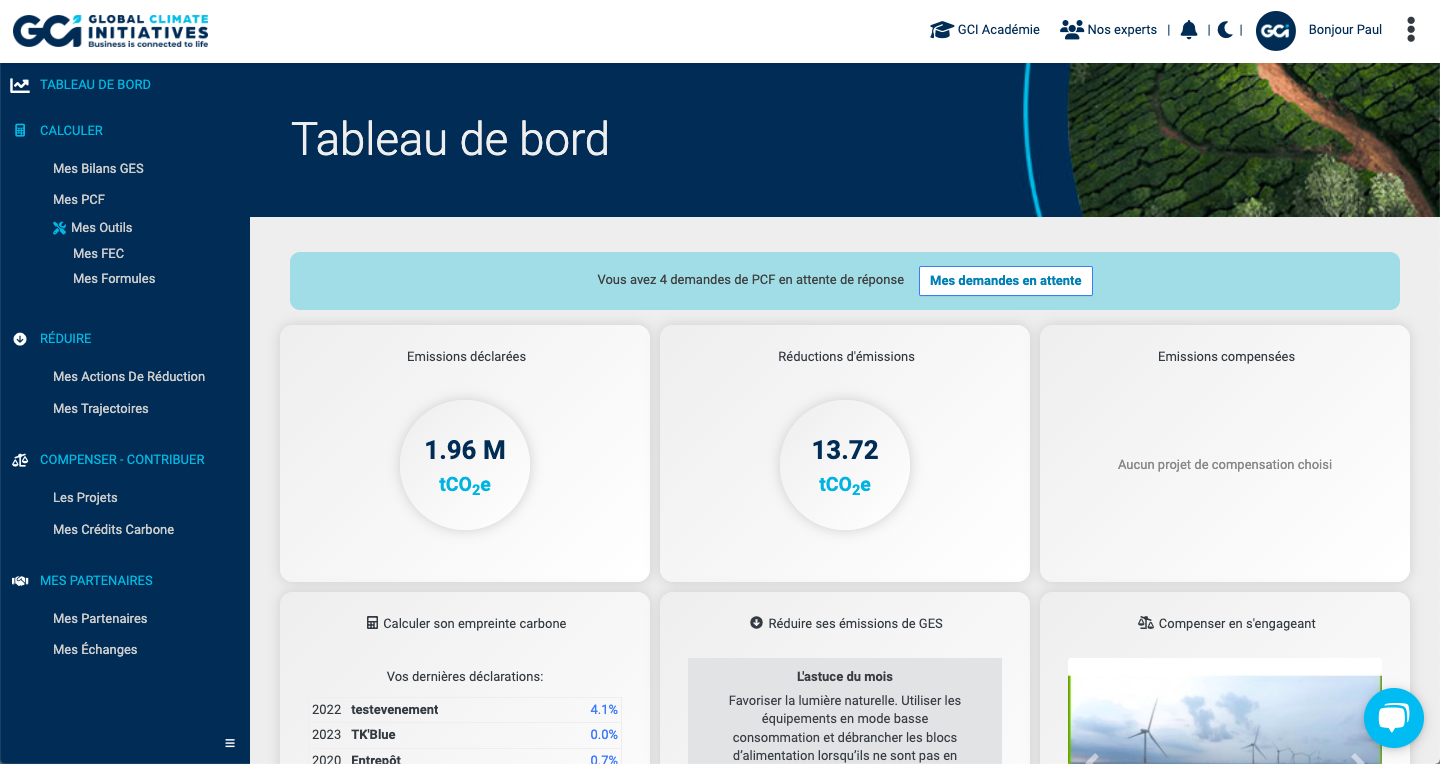
July 19, 2023 |
Bilan GES, How do I calculate my Bilan GES?
Measure and reduce my carbon footprint with GCI
It is essential that companies have a reliable solution for calculating their carbon footprint in order to play a key role in reducing GHG emissions.

May 30, 2023 |
GHG balance, How to calculate my GHG balance, Doing your GHG balance
A practical guide to calculating a product's carbon footprint using LCA
LCA is an essential asset for companies wishing to reduce their carbon footprint and remain competitive in the marketplace.

May 12, 2023 |
Bilan GES, How do I calculate my Bilan GES?
Why and how can we improve our GHG inventory thanks to the commitment of our suppliers?
There is an essential lever for decarbonizing its activity: the involvement of suppliers, who represent 50 to 90% of Scope 3 emissions.

Apr 28, 2023 |
Bilan GES, How do I calculate my Bilan GES?
Carbon footprinting, the first step towards measuring and improving your Carbon Competitiveness®.
The carbon footprint is becoming the mandatory indicator for the ecological transition and the sustainability of all companies.
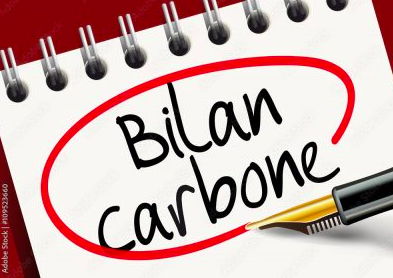
Sep 29, 2022 |
How do I calculate my GHG footprint, How do I do my GHG footprint?
Obligations of the Carbon Inventory... but an opportunity to reduce your emissions!
Since July 1, 2022, the government's "transition plan" has been stricter. Companies are obliged to calculate their carbon footprint and establish a low-carbon trajectory by considering the *global* volume of their GHG emissions. Companies must also demonstrate the coherence of their long-term low-carbon trajectory.

Sep 18, 2022 |
How to calculate my GHG footprint, Low-carbon strategy
CSR and SDO: what are they?
Corporate Social Responsibility: CSR and Sustainable Development Goals: SDGs - two acronyms to know

Sep 12, 2022 |
How do I calculate my GHG footprint, How do I do my GHG footprint?
Improving a company's carbon footprint through the proper use of the circular economy
Since the Paris Agreement, countries and companies have agreed on the importance of acting against global warming, i.e. acting on their carbon footprint by limiting their GHG emissions. Solutions have been developed to help companies commit and accelerate their ecological transition. To facilitate the implementation of these reduction solutions, the realization of a GHG assessment is the ideal solution.
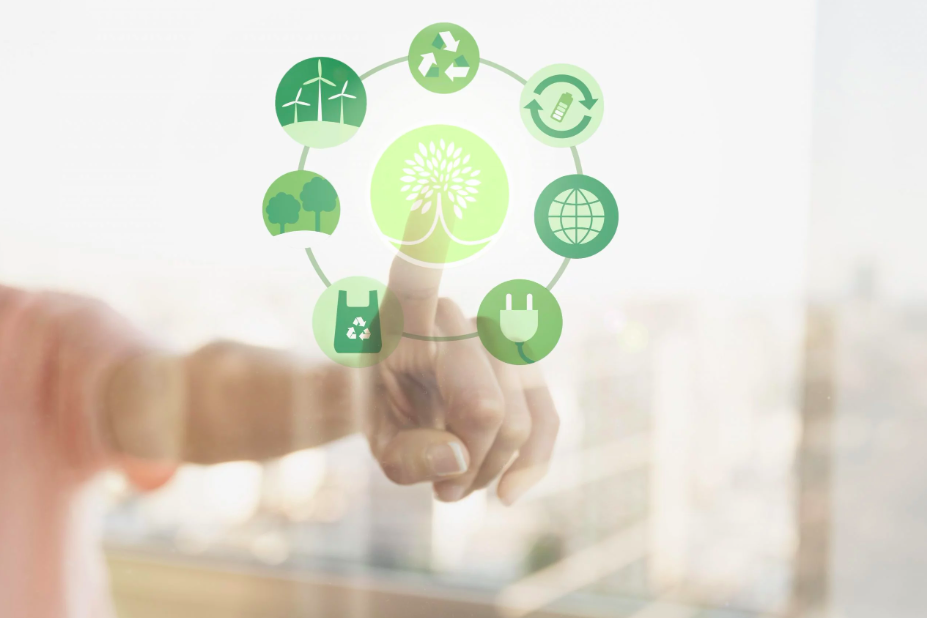
August 5, 2022 |
How do I calculate my GHG footprint, How do I do my GHG footprint?
One, two, three... and the GHG emissions will be well calculated!... And reduced!!! Focus on the integration of the 3 scopes on the GCI platform.
The new decree of July 1, 2022, which imposes scope 3 and a reduction action plan, and the 2022 Finance Act, which requires most companies with more than 50 employees to also carry out a GHG assessment, albeit initially in a simplified form, confirm the growing regulatory pressure.

August 1, 2022 |
How to calculate my GHG footprint, Expertise
"Don't do my company's GHG assessment, teach me how to do it instead!"
A complete balance sheet is the inventory of GHG emissions through three categories, also called scopes. The objective is to categorize greenhouse gas emissions by item or by type of activity of a company. The integration of all these emissions in a GHG assessment allows a complete review and then, to engage solutions to reduce them.

Jul 27, 2022 |
How do I calculate my GHG footprint?
Carry out its GHG inventory® to respect the "tertiary decree
To improve the energy performance of existing buildings, the law goes further with the "tertiary decree", which is much more restrictive and monitored. The latter aims to accelerate the reduction of energy consumption in public and private buildings. Several solutions are outlined in the existing regulations.

July 11, 2022 |
How do I calculate my GHG footprint, How do I do my GHG footprint?
Publication of the July 1, 2022 decree on greenhouse gas emissions assessments: Scope 3 finally becomes mandatory!
Scope 3 covers all indirect greenhouse gas emissions associated with an organization's activity. It therefore represents many more GHG emissions than Scopes 1 and 2, which only account for direct and indirect energy-related emissions.
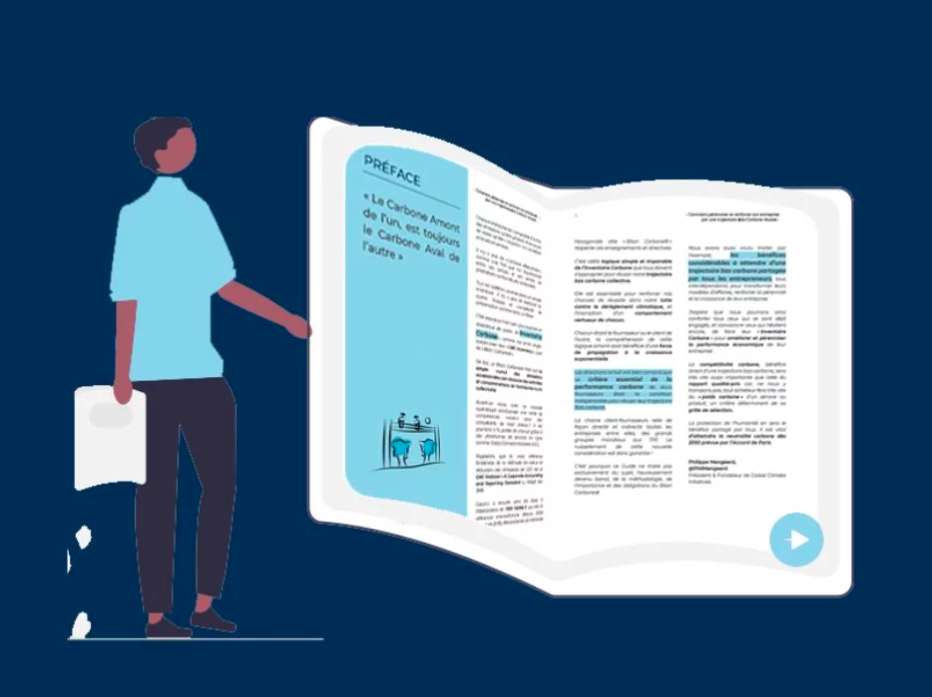
June 27, 2022 |
How do I calculate my GHG footprint?
A Low-Carbon trajectory: a must for the company's survival
GCI offers on its website a free downloadable guide "How to perpetuate and strengthen your company through a successful low-carbon trajectory", this guide has 3 objectives: to explain simply what a low-carbon assessment and strategy consists of, to demonstrate the opportunities for developing its performance, to present concrete examples
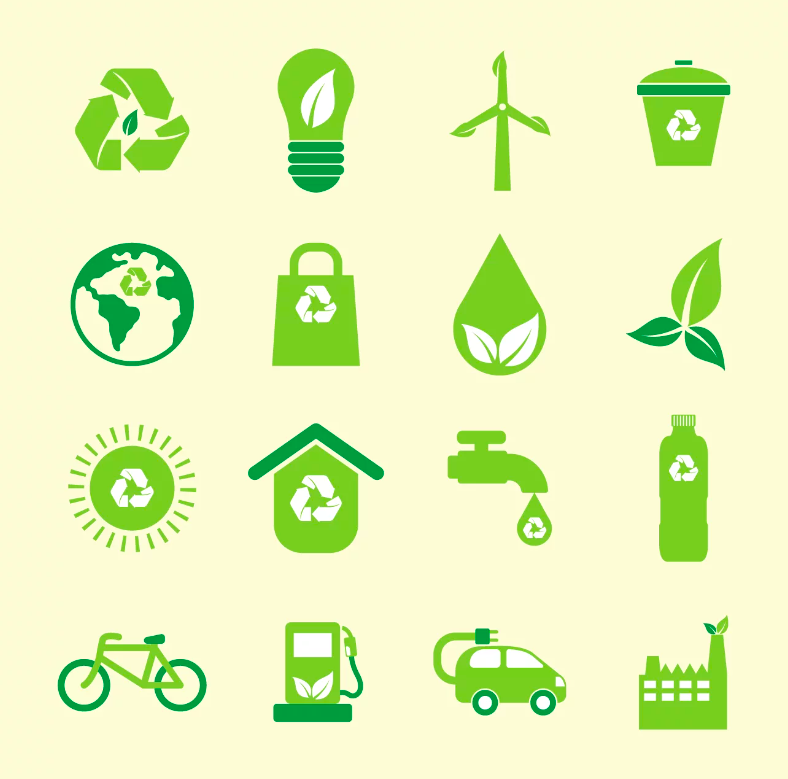
June 2, 2022 |
How do I calculate my GHG footprint?
Responsible purchasing must take into account the "carbon weight" of suppliers
The Purchasing function is at the heart of the company's operations. The implementation of responsible purchasing is an effective lever for implementing sustainable development and a policy of social responsibility (CSR) within the organization.

May 16, 2022 |
How to calculate my GHG footprint, Expertise
What is the Bilan Carbone (greenhouse gas emissions assessment)?
The carbon footprint calculates a company's total greenhouse gas emissions. Carbon dioxide, methane, nitrous oxide... emissions of several types of gas are reviewed. The aim of this approach is to give a company a precise idea of its carbon footprint.

Apr 16, 2022 |
How do I calculate my GHG footprint, How do I do my GHG footprint?
Direct and indirect emissions: Mapping of SCOPES 1, 2 and 3 according to the GHG Protocol
Doing a carbon footprint report gives an account of the carbon footprint of an organization. It allows for the quantification of all greenhouse gas (GHG) emissions directly or indirectly generated by an organization.
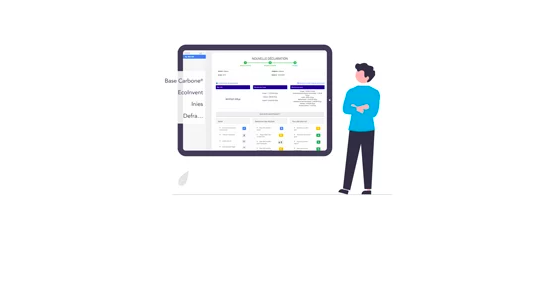
Apr 12, 2022 |
GHG balance by sector, How do I calculate my GHG balance?
CO2 emissions by sector of activity
The GHG assessment is the identification and the precise quantification, complete and following the regulations, of the greenhouse gas emissions of a company or an organization, in order to find ways to reduce them. To be effective, the carbon footprint must take into account the company's sector of activity.

Apr 12, 2022 |
How to calculate my GHG footprint, GCI, videos
The carbon footprint, the heart of the strategy of sustainable companies
According to Philippe Mangeard, the carbon footprint can be the starting point for a new organization of the company decided collectively and baptized with a nice word: low carbon strategy. What we also need to understand is that we cannot reduce our carbon footprint alone within the company, we need to involve our ecosystem.
Apr 12, 2022 |
How to calculate my GHG footprint, Definitions
Differences between GHG and Carbon Footprints
Any company that is interested in carrying out a Greenhouse Gas Emissions Assessment will have heard two terms: Carbon Footprint and GHG Footprint. Although they have a similar approach, i.e. the accounting of greenhouse gases emitted by an entity or organization for its activities, some particularities differentiate them, such as the definition of the scope of accounting of emissions.

Jan 14, 2022 |
How to calculate my GHG footprint, All GCI news, videos
How to improve your carbon footprint through the circular economy?
Global Climate Initiatives was set up in 2012 to enable anyone, whether a company or a local authority, to carry out a simple, independent carbon audit, and thus identify ways of reducing emissions. The Circular Economy is one of these good solutions, and also brings a number of very appreciable societal benefits.

Nov 24, 2021 |
How to calculate my GHG footprint, Definitions
How to better understand the carbon inventory?
Adaptation to climate change is necessary, but mitigation is essential to limit the costs of adaptation.

Nov 24, 2021 |
How do I calculate my GHG footprint?
What is the Carbon inventory?
The carbon footprint is a diagnosis of the direct and indirect emissions of an organization in order to identify reduction actions.
Préc.
1
2
3
4
5
6
Suiv.

Mar 25, 2025 |
Offsetting your organization's carbon footprint, Reducing and managing your organization's carbon footprint, Committing to a decarbonization strategy?
Carbon plan: how to structure your reduction targets and actions?
Faced with new climate obligations, companies need to structure their low-carbon plan. Discover the key stages and GCI's solutions for a successful transition.

Feb 3, 2025 |
Reduce and manage your company's carbon footprint
Are corporate GHG emissions reliable?
Corporate GHG assessments are essential to achieving carbon neutrality, but their reliability is often called into question. Between incomplete data, dependence on external databases and the risk of greenwashing, guaranteeing accurate figures remains a major challenge.

Dec 16, 2024 |
Offsetting your organization's carbon footprint, Reducing and managing your organization's carbon footprint, Committing to a decarbonization strategy?
Acting for the climate: 3 key actions to reduce greenhouse gas emissions
Adopt a low-carbon strategy combining concrete and ambitious measures.

Oct 30, 2024 |
Reduce and manage your organization's carbon footprint, Embark on a decarbonization strategy?
Mobilize your employees to reduce your carbon footprint and build a resilient future
By educating and training their employees in environmental issues, companies create a major strategic lever.

Oct 24, 2024 |
Reduce and manage your organization's carbon footprint, Embark on a decarbonization strategy?
How can you reduce your carbon footprint?
Reducing their carbon footprint is essential for companies faced with the climate emergency. By adopting energy transition solutions and sustainable practices, they can both comply with regulations and improve their economic performance.

Mar 28, 2024 |
GHG inventory, Reduce and manage your organization's carbon footprint
3 tips to reduce your company's carbon footprint
The carbon footprint is a major issue for companies, while at the same time meeting consumer expectations. Discover three concrete tips for reducing your company's carbon footprint.

July 31, 2023 |
Reduce and manage your organization's carbon footprint, Embark on a decarbonization strategy?
Define and manage your company's low-carbon trajectory
Setting up a low-carbon trajectory is a fundamental issue for companies today. Here's how to get started 👉

July 27, 2023 |
Reducing and managing your organization's carbon footprint, Committing to a decarbonization strategy, Low-carbon strategy
A complete guide to achieving carbon neutrality in the workplace
Here's a detailed guide to help companies make their own contribution to the global goal of carbon neutrality.

July 3, 2023 |
Reducing and managing your organization's carbon footprint, Committing to a decarbonization strategy, Low-carbon strategy
Responsible innovation: definition, challenges and prospects
Innovating without negatively impacting the planet is a major challenge. Here are a few perspectives to help companies meet this challenge.
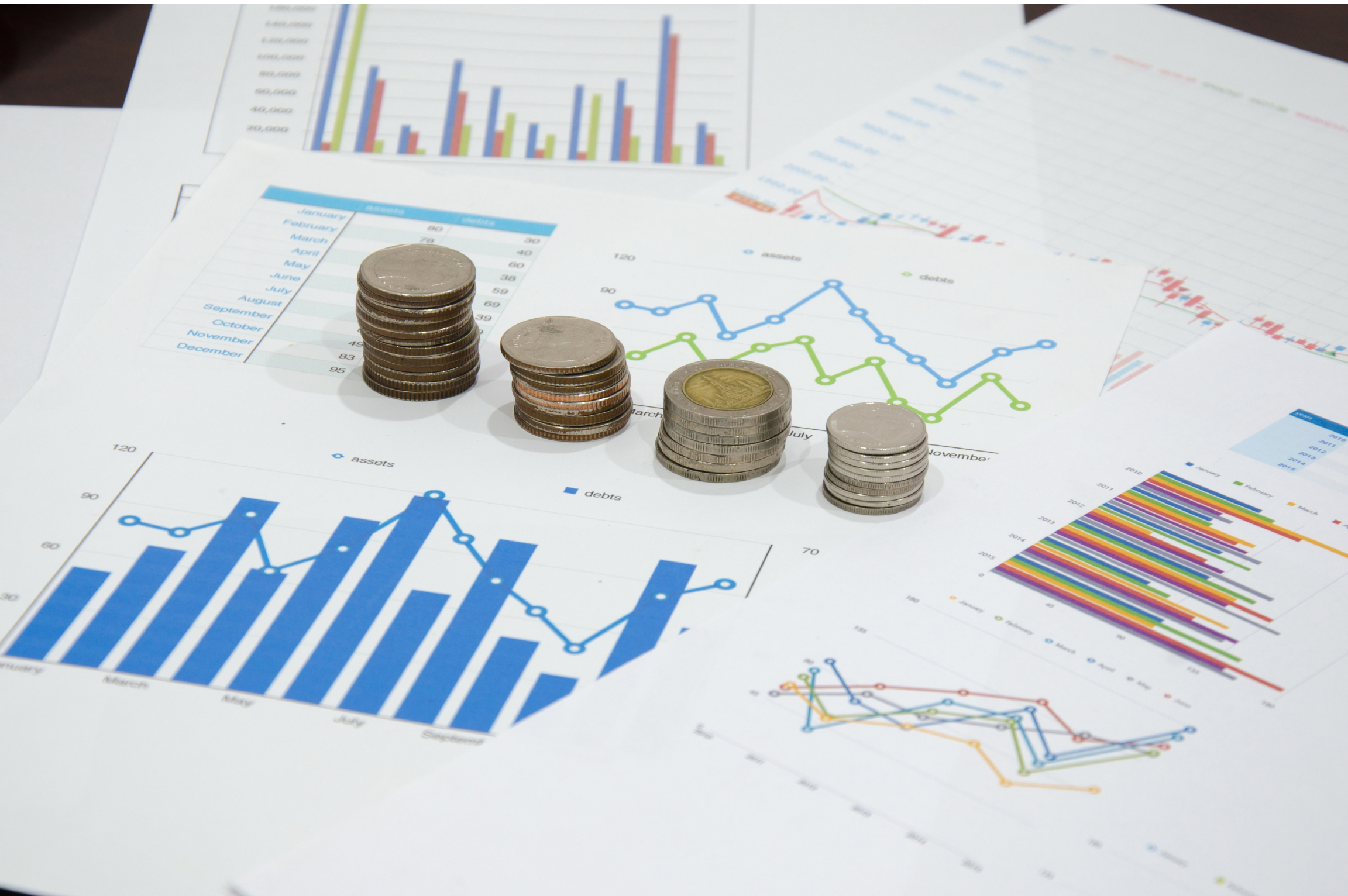
May 26, 2023 |
GHG inventory, Reduce and manage your organization's carbon footprint, Low-carbon strategy
Carrying out your carbon assessment/action plan with a service provider or ... in-house: How do you choose?
Should you carry out these actions in-house, or use an external service provider, which is simpler in the short term, but also more expensive?

May 23, 2022 |
Offset your organization's carbon footprint, Reduce and manage your organization's carbon footprint
The GHG assessment also means reducing as much as possible and compensating seriously!
Carbon neutrality by 2050 requires immediate action. Find out how you can take action to reduce residual emissions with reduction actions and carbon offsetting.

Nov 18, 2021 |
Reduce and manage your company's carbon footprint
ECO-GEST - Events
Simple eco-gestures to organize and maintain a responsible event in the fight for the climate
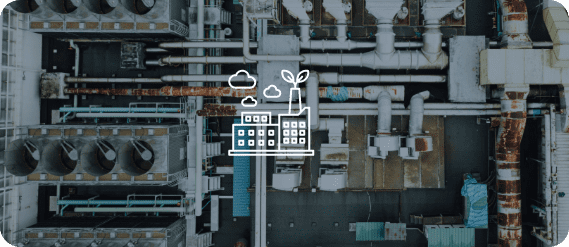
Nov 18, 2021 |
Reduce and manage your company's carbon footprint
ECO-GEST - Industrial or commercial sites
Useful, practical and free eco-gestures to improve economic and environmental performance in the industry.
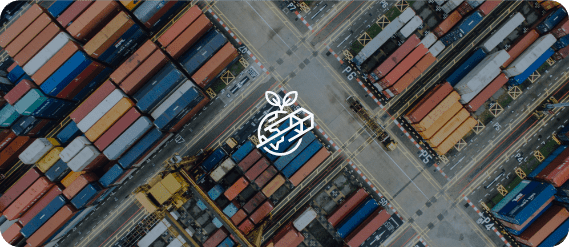
Nov 18, 2021 |
Reduce and manage your company's carbon footprint
Green habits for goods transport
Simple green habits to improve your economic and environmental performance throughout your transport chain

Nov 18, 2021 |
Reduce and manage your company's carbon footprint
Green habits for third sector and service industries
At work it is also possible to act for the climate: here are some simple green habits to reduce your ecological footprint.
Prev.
1
2
Next
Carry out your company's GHG assessment with the GCI platform
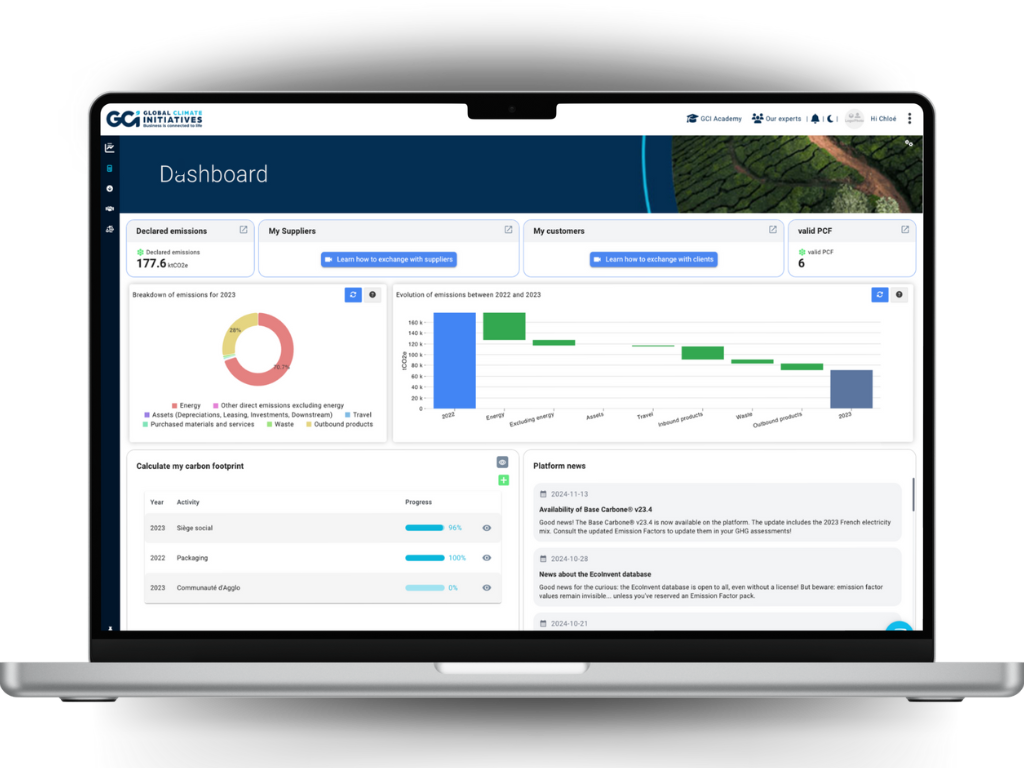
Free downloadable guides








